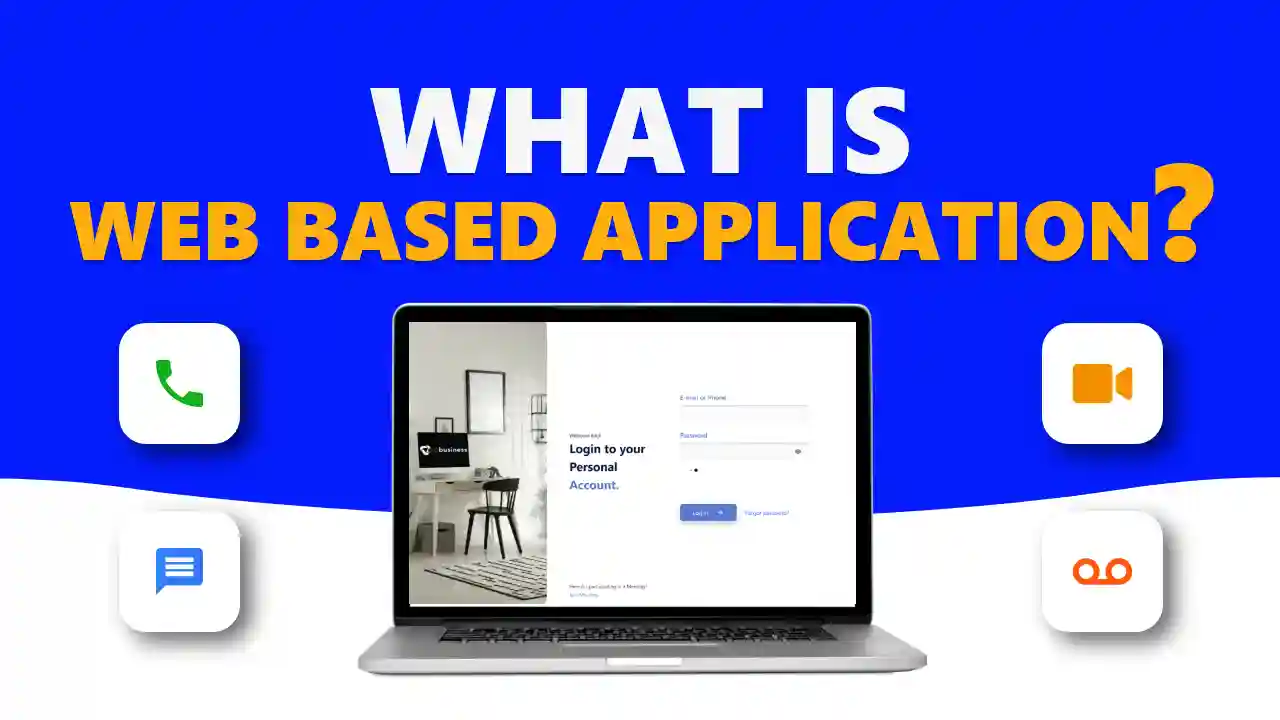In today’s competitive market, maximizing user interaction and capturing market segments has become necessary. Customized web-based applications are the best ways to reach your customers. With the help of such apps, users can interact with you using a web browser window. The development of web apps has been present in the market for decades.
Over time, more and more business owners understand its importance and get a web app developed to represent their business or brand. Now you can see many such apps, including online retail sales, online auctions, online banking and webmail.
The advanced and complex programming led us to apps with simpler user functions. Web app developers provide their services to give our customers a finer user experience. It also improves user interaction in a way that was not possible before.
In this article, we will explain a web app, how it benefits your business and some examples of web-based apps.
What Is A Web Based Application?
A web based application is a computer program stored on a remote server and uses web technology and web browsers to perform various tasks over the internet. By definition, web services are web apps. However, not all websites have web apps.
The demand for web apps is increasing continuously because they do not need a download. Users can access a web app using any web browser, such as Google and internet explorer.
Web developers offer their services to design web apps for various users, from the individual level to larger organizations. Web apps commonly used include e-commerce, webmail, and online calculators.
How Do Web Based Apps Work?
Web based applications do not require any download because they can be accessed on web browsers. Users only need to know the URL of the web app and start using it through their browser. Above all, you need an internet connection to use a web app.
Now let’s see what you need to operate a web based app:
- Web server
- application server
- Database
These are the three components that work together to run a web app. A web server works to manage the requests coming from a client, while an application server completes the requested tasks. The function of the database is to store all the necessary information.
Web applications usually take a little time to develop and do not need a large team of developers. Developers write most web apps in HTML5, CSS or JavaScript to develop the front end of these apps, while the back end of the web application is developed by using apps such as Python, Ruby, and Java.
If planning for web based app development is done carefully, the app development process will not take long.
Benefits Of Web Based Applications For Businesses

A web based applications can provide numerous benefits to your business, some of which are as follows:
1. Accessible From Anywhere
Unlike traditional applications, Saas applications can be used on any web browser and work efficiently on all operating systems. Users can use your web app anytime, anywhere, using a mobile device and internet connection. It also helps in solving problems because of the consistency of every user.
This accessibility opens up modern and exciting possibilities such as having teams globally, remote working and real-time collaboration. The idea of sitting in front of your office computer has become a thing of the past. Web apps offer more flexibility and ease.
For example, with VoIP apps, your employees can make and receive calls no matter where they are.
2. Cost Effective Development
As described above, web-based applications allow users to access a system through a uniform web browser environment. Although the user interaction with the application has to be tested on different browsers, the application only needs to be developed for a single operating system.
Web developers do not need to develop and test web apps on all possible operating systems, so you do not need to spend more effort and money on developing a web app.
3. Easy Customization
It is easier to customize the user interface of web-based applications than it is for standard desktop applications. It makes it easier to update the application’s look or customise its presentation to different user groups. It means you can get a customized web app according to your target audience and make this app as user-friendly as you can.
Web-based applications can also be responsive to change depending on the browser. It supports remote working and ensures employees have all the applications at their fingertips when needed.
4. Easy Installation And Maintenance
Another benefit of web-based applications is that it makes installation and maintenance much easier. Whenever an upgrade is installed on the host server, all users have access to this update, and there is no need to upgrade every user’s PC.
Rolling out new software and adding new features is easy and only requires that users have up-to-date browser plugins. These upgrades are performed by an experienced professional to a single server, so the results are more reliable and predictable.
Moreover, web apps offer easy scalability. You can increase your application capacity if your business grows.
5. Increased Security
Since web-based applications are deployed on dedicated servers, it is easier to monitor them. These servers are monitored and maintained by experienced server operators. It is far more effective and easy to monitor a single server instead of monitoring hundreds or thousands of clients’ computers as in desktop applications.
It means the security of web apps is tighter, and potential breaches can be noticed and fixed more quickly. It means the risk of unauthorised access is significantly reduced.
Difference Between Web Applications And Mobile Applications
In particular, mobile apps are more popular than web apps. Native mobile apps are software developed on a specific device or operating system such as Android or iOS. They are developed by using specific programming languages to work on certain platforms.
You need to download and install mobile apps from an app store. These apps also access system resources such as camera functions or GPS. Mobile apps run only on the device where they are installed.
On the other hand, web apps can adapt to any device you want to use by using its URL. You do not need to download it. Thus, it offers more flexibility and easy access.
Examples Of Web Based Applications

With the increasing use of the internet, the number of web applications has also increased. Every business owner wants to improve customer interaction and get more leads, and our applications help them reach more customers online. There are different types of web applications, including web services.
Here are a few examples of web apps:
- VoIP Business desktop app (including voice calls, messaging, and video meetings)
- Photo and video editing apps
- Word processors
- Online shopping carts
- Presentations
- Spreadsheets
Google Workspace brings numerous web apps, such as Google docs and spreadsheets, under one roof and is commonly used by businesses. Using it lets your team members work on the same document simultaneously without downloading, uploading or sending files.
Is VoIP Phone System A Web Based Application?
A VoIP phone system itself is not inherently a web-based application. VoIP is the technology that allows voice communication over the Internet instead of traditional phone lines. It typically involves hardware (IP phones and routers) and software components (including servers and call management software) to facilitate voice communication over the Internet.
While some VoIP services may have web-based interfaces for user management, configuration, or accessing certain features, the core functionality of a VoIP phone system is not limited to web-based applications. VoIP phone systems can operate independently of web browsers, and users can often interact with them through dedicated hardware devices, desktop applications, or mobile apps.
Conclusion - Web Based Application
Web-based applications, or web apps, are computer programs stored on a remote server and can be accessed using web browsers to perform various tasks over the internet. Some examples of web-based apps are online retail sales, online auctions, online banking, and webmail.
Web developers design web apps for individual users as well as larger organizations. Web apps usually consist of three components: web server, application server, and database.
The benefits of web apps for businesses include accessibility from anywhere, cost-effective development, easy customization, easy installation and maintenance, and increased security.
The difference between web and mobile applications is that mobile apps are software developed for use on a specific device or operating system and are downloaded from an app store.




